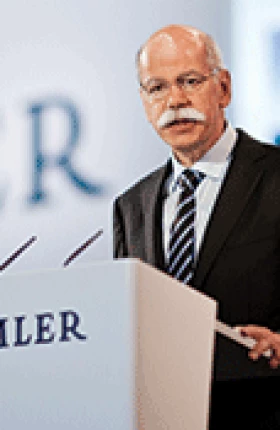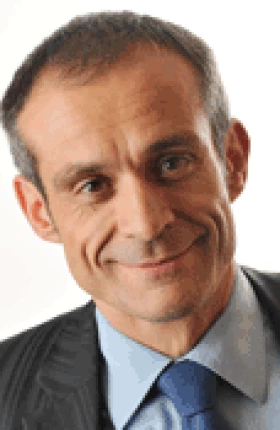Siegfried Russwurm, the chief executive of Siemens Industry Sector, is an engineer by training who oversaw human resources at Siemens earlier in his career. He recognizes that managing a global business requires both precision and judgment.
Russwurm has a precise understanding of the specific capabilities required in emerging markets and the challenges of managing businesses across both emerging and mature markets. But he also recognizes the art—the “managerial spirit”—of his job.
Siemens Industry Sector is a large and global business with revenues of €20 billion in fiscal 2011 and operations in almost 200 countries. Tremendous variation exists across its markets. Managing talent requires the company to transfer knowledge to younger employees in mature markets, for example, and to find young employees with the right skills in emerging markets and ensure that they stay.
Culture is what connects the far-flung empire into a cohesive whole. Three words—responsible, excellent, and innovative—form the bedrock of values at Siemens, and they are not negotiable. The entire managing board of Siemens also travels together twice a year to distant markets and spends several days in the field as a sort of reality check on how Siemens is doing. Russwurm believes that one of the best ways to evaluate his employees is by watching them in action during his numerous client visits.
Russwurm recently spoke with Christian Veith, a senior partner and managing director at The Boston Consulting Group. Edited excerpts of their conversation follow.
Professor Russwurm, thank you for giving us this interview. Talk about the sector you are leading. How global is Siemens Industry Sector?
We reflect the global aspirations of Siemens. About 100,000 people serve customers in almost 200 countries. Our roots are in Germany. About 40,000 of our people are in Germany, and the others are quite balanced throughout the rest of Europe and the adjacent regions. We have about 20,000 people in the Americas and almost 20,000 people in Asia. So it is a truly global enterprise.
One of the key topics we talk about today is this two-speed world, with more mature markets growing slowly—or at least less fast—and emerging markets growing relatively fast or very fast. How does this paradigm apply to the business you are responsible for?
It is clear that the future is with fast growth. So we have to be in these growing economies to secure our future. At the same time, we have to accept—and we will fully accept—that our traditional customers in the traditional markets currently drive volume. Moreover, those customers from the Western Hemisphere—to simplify it—are on their way to the emerging economies. So in the two-lane approach, we have to balance our efforts in the traditional markets and in the emerging markets.
How much time do you, personally, spend in these two worlds?
It is quite balanced, although the absolute numbers would argue for the mature markets. In order to build up new ecosystems in the emerging countries, I spend about half of my time in those markets.
How do you make sure that those parts of the businesses get the right attention? Is that happening naturally?
We focus on this. We focus both on regional strategies and on the strategy of vertical businesses with respect to their footprints around the globe. The board of Siemens is also traveling to those regions. Twice a year, we typically have board meetings in interesting regions of the globe, sometimes in the BRIC nations and sometimes in the second-wave countries. It is quite a nice regime because the whole board travels to a country. We first have a session with country management, and they give us their view on how Siemens is doing in the environment. And then ten board members spread out to see stakeholders: customers, government officials, you name it.
After two days, we reconvene and try to consolidate what are typically 200 touch-points to see if they mesh with the descriptions that our local team has given us and to reach conclusions. What are the investments that Siemens should make in these regions?
What are some of the key differences in the way that the two worlds operate?
Going to market is different in emerging countries because customers there are different and their needs are different from those in the mature markets. Product life-cycle management and product design have to take into account different boundary conditions and technical perspectives. We try to adapt. But we also take this diversity as a source of learning for us as an entire organization.
In what way do you try to keep a global culture in your businesses? What aspects of culture are not negotiable? And in what way do you respect different cultures in different parts of the world, and how do you balance these two approaches?
There is common ground, and there are common values: We are responsible, excellent, and innovative . That is true wherever Siemens operates. On the other hand, we do adapt to local cultures. We have a leadership team that is truly global, so we have local people that help us to understand local cultures. We want to be as local as it helps our business, and it fits our culture, but we are also as global as the customers want in order to realize that benefit as well.
Are you saying that there is huge variety in the emerging markets?
Yes, but it is built on a solid foundation. There are common values and beliefs that are nonnegotiable throughout the globe.
Talent is a big global issue today. What are the challenges in the fast-growing countries? Are they the same issues as in mature markets?
In our mature markets, it is more a question of generation diversity. How can we make sure that, with the demographic changes in these markets, younger people and newcomers to our company can harvest and inherit the expertise of their predecessors? That is a different ball game than in an emerging country, where we are building our operations. There, the question is more, How can we hire people who have expertise for the specific market? In some of these emerging markets, we have to be very precise about the expertise we need—and whether, for example, schools and universities can give us that expertise.
It is also a matter of attrition. Having two years of experience at Siemens listed on a CV is an advantage in many parts of the globe. People are happy to join us so that they get a good education within a multinational company, but then they are attracted by offers from others. To keep the best and the brightest is an interesting challenge that we increasingly have around the globe. We make quite the effort to ensure that those people stay with us.
As a leader, how do you make connections with your people in the various markets beyond simply meeting with them, in order to get a real view of them and their qualifications?
The best opportunity is to visit customers together with them. I see how they interact with the customer, how well they understand the customer’s needs, and how well they argue the Siemens value proposition to specific customers. That is a wonderful source of insight.
Looking at the various stakeholders, how do you manage that group, specifically in places where the state has a very important role?
That is not always easy. There is no straightforward recipe. It is one of those challenges of managerial life that requires you to make decisions. There is no algorithm that says, “If you ask the following questions you will get these results.” There is a managerial spirit that you have to apply.






